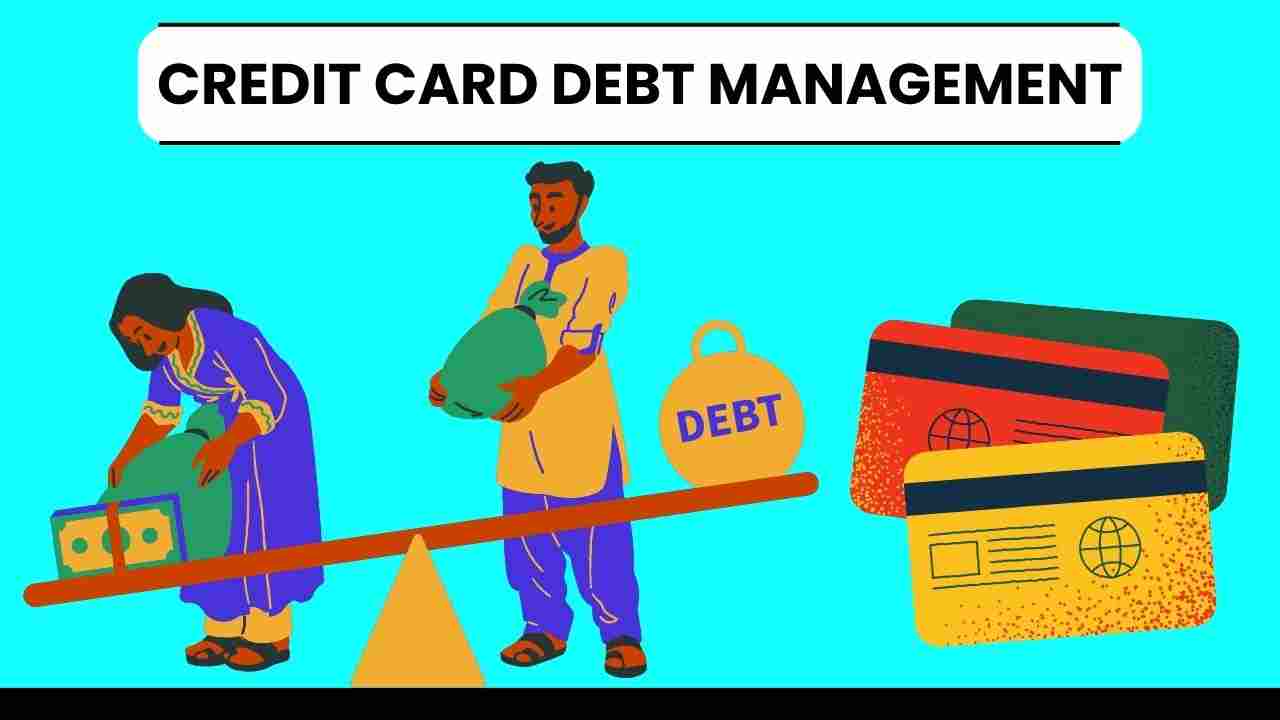Introduction
Credit cards provide a range of benefits, including convenience and versatility, making them valuable financial instruments. However, if not managed responsibly, they can lead to accumulating credit card debt. Managing credit card debt is essential to maintain a healthy financial life. In this article, we will explore effective strategies for responsibly managing credit card debt, including making timely payments, avoiding high-interest rates, and utilizing balance transfers or debt consolidation when necessary.
I. Understanding Credit Card Debt
Credit card debt refers to the amount of money owed to a credit card issuer, typically resulting from unpaid balances carried over from month to month. This debt accrues interest, and if left unaddressed, can become overwhelming and detrimental to your financial well-being.
2. Avoid High-Interest Rates: Interest rates are a significant factor in credit card debt management. If possible, opt for credit cards with lower interest rates to minimize the cost of borrowing. If you have multiple credit cards, prioritize paying off those with the highest interest rates first. Additionally, consider negotiating with your credit card issuer for a lower interest rate or exploring options for balance transfers.
II. Strategies for Responsible Credit Card Debt Management
1. Create a Budget: Developing a realistic budget is essential for managing credit card debt effectively. Evaluate your income, expenses, and debt commitments to gain a clear understanding of your financial situation. Allocate a portion of your income to paying off credit card debt while still covering necessary expenses. Identify areas in your budget where you can cut back on expenses and allocate those savings towards paying off your debts.
2. Pay More Than the Minimum: Paying only the minimum amount due prolongs the time it takes to pay off your credit card debt and increases the overall interest paid. Aim to pay more than the minimum each month, focusing on one card at a time. By consistently paying more, you will accelerate the debt repayment process and save money on interest in the long run.
3. Prioritize Debts Strategically: If you have multiple credit cards with varying balances and interest rates, employ the debt avalanche or debt snowball method to prioritize your repayments. The debt avalanche method involves paying off the highest interest rate card first, while the debt snowball method focuses on paying off the smallest balance first. Select the approach that aligns with your financial objectives and personal motivations.
4. Consider Balance Transfers: A balance transfer involves moving high-interest credit card debt to a card with a lower interest rate, often with a promotional period of zero or low interest. This can provide temporary relief and help you save on interest. However, be mindful of transfer fees and the terms and conditions associated with the new card. Take advantage of the promotional period to aggressively pay down the transferred balance.
5. Debt Consolidation: Debt consolidation involves combining multiple debts into a single loan or credit line with more favorable terms. This can simplify your debt repayment by consolidating various payments into one monthly installment. Explore options such as personal loans, home equity loans, or debt consolidation programs. Assess the interest rates, fees, and terms to ensure it is a viable solution for your financial situation.
6. Seek Professional Help if Needed: If your credit card debt becomes overwhelming and you are struggling to manage it on your own, consider seeking assistance from a credit counseling agency. These nonprofit organizations can provide guidance on budgeting, debt management plans, and negotiations with creditors. Ensure you choose a reputable agency accredited by the National Foundation for Credit Counseling (NFCC) or the Financial Counseling Association of America (FCAA).
Conclusion
Managing credit card debt is a crucial aspect of maintaining a healthy financial life. By making timely payments, avoiding high-interest rates, and implementing strategies such as balance transfers or debt consolidation when necessary, you can take control of your credit card debt and work towards becoming debt-free. Remember, responsible debt management starts with budgeting, prioritizing repayments, and seeking professional help if needed. Take proactive steps today to regain control over your finances and secure a more stable future.

